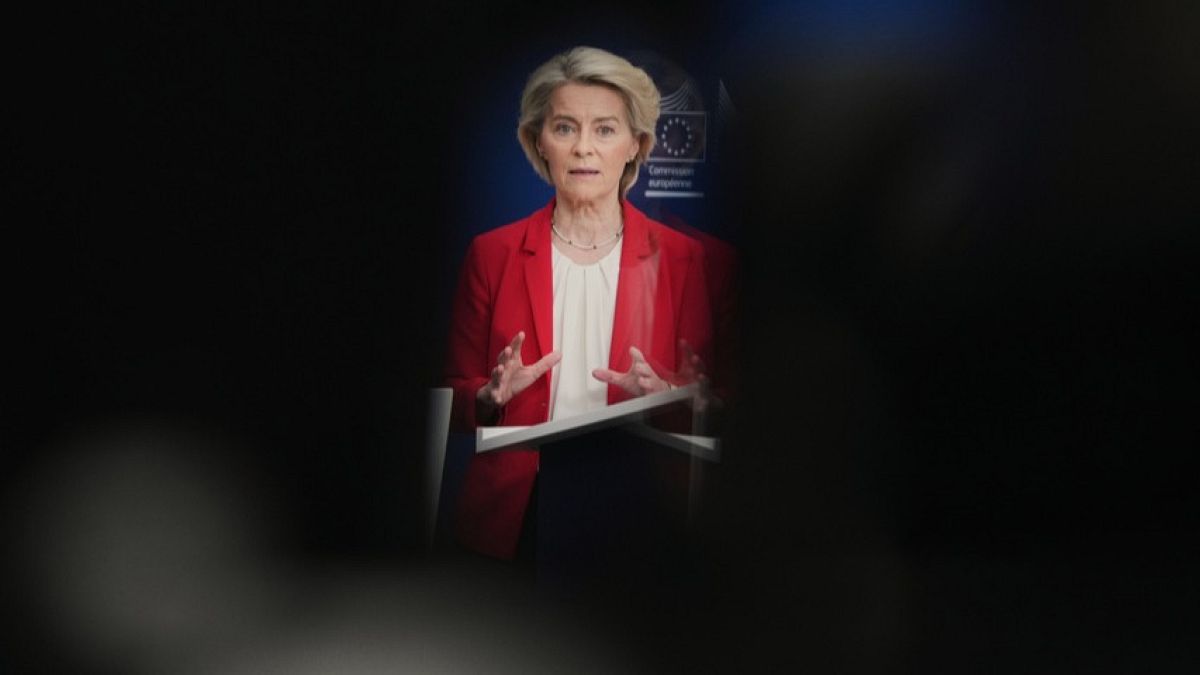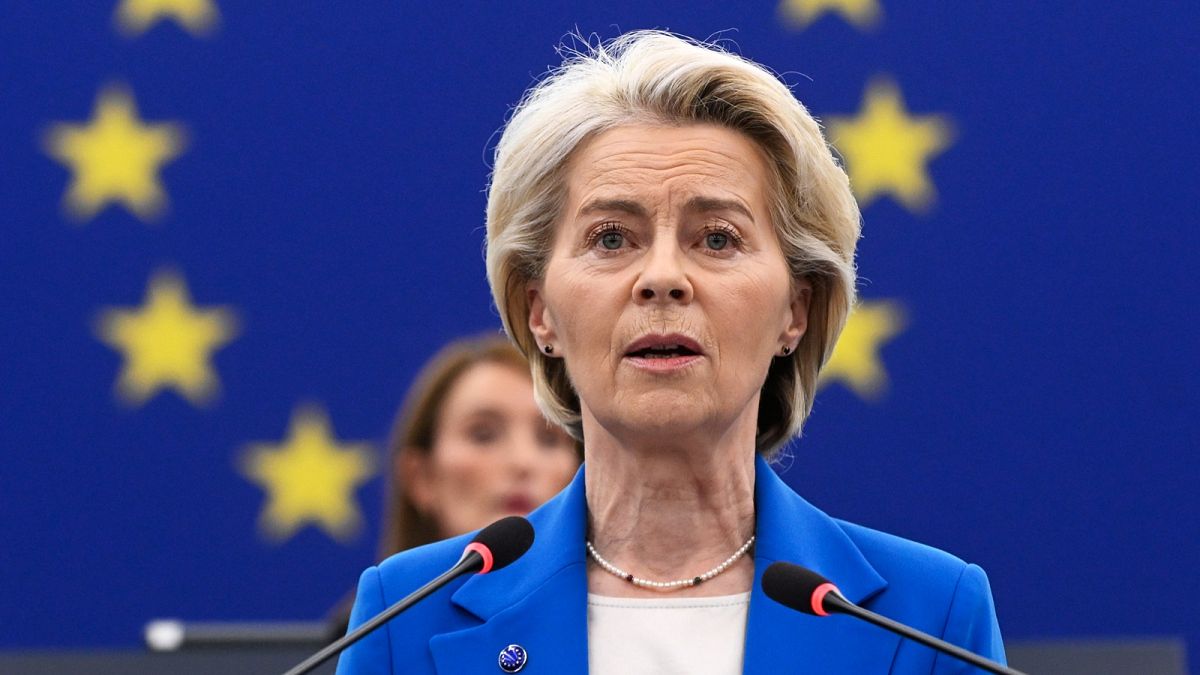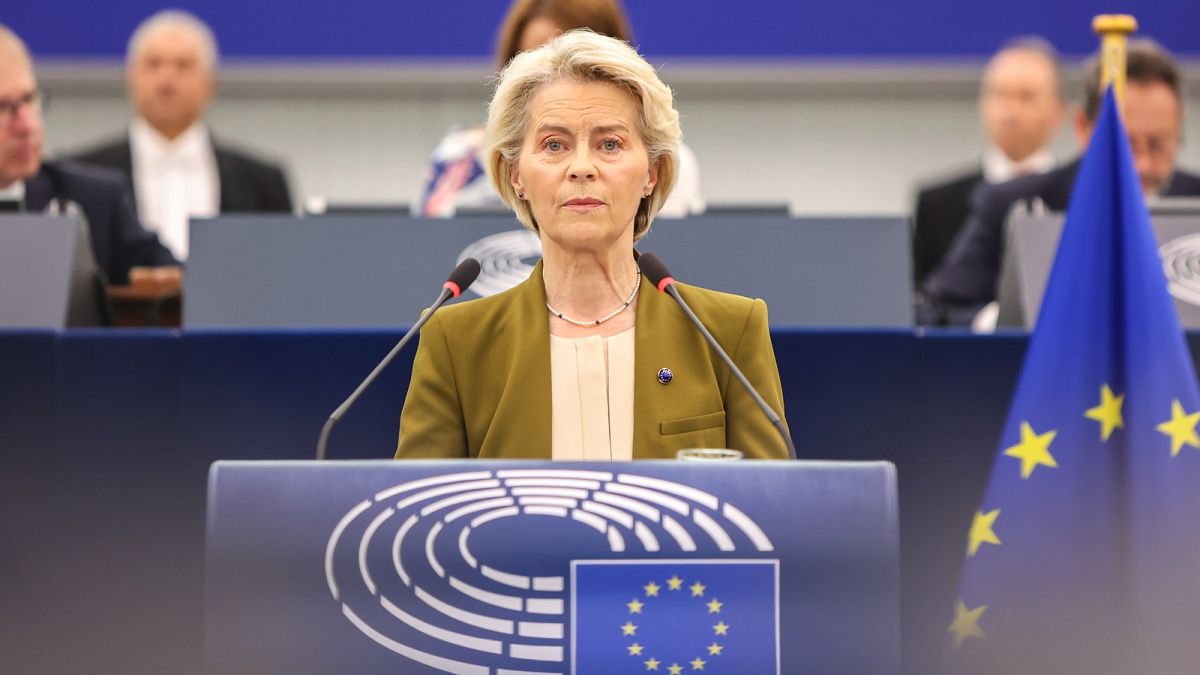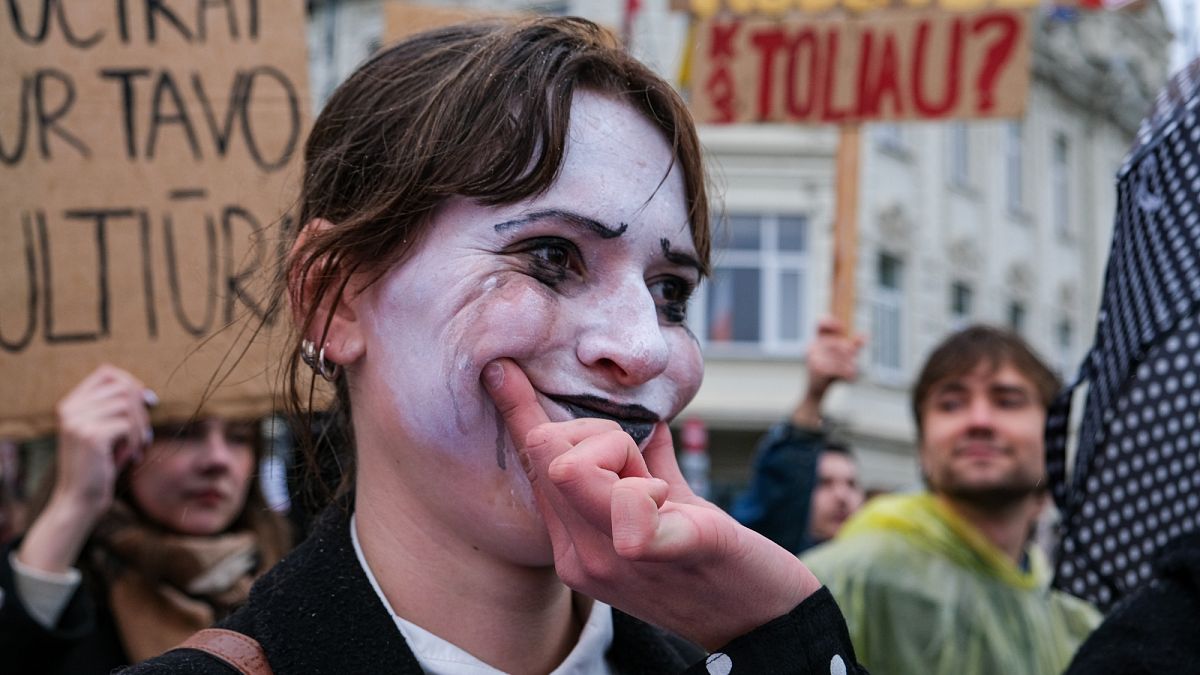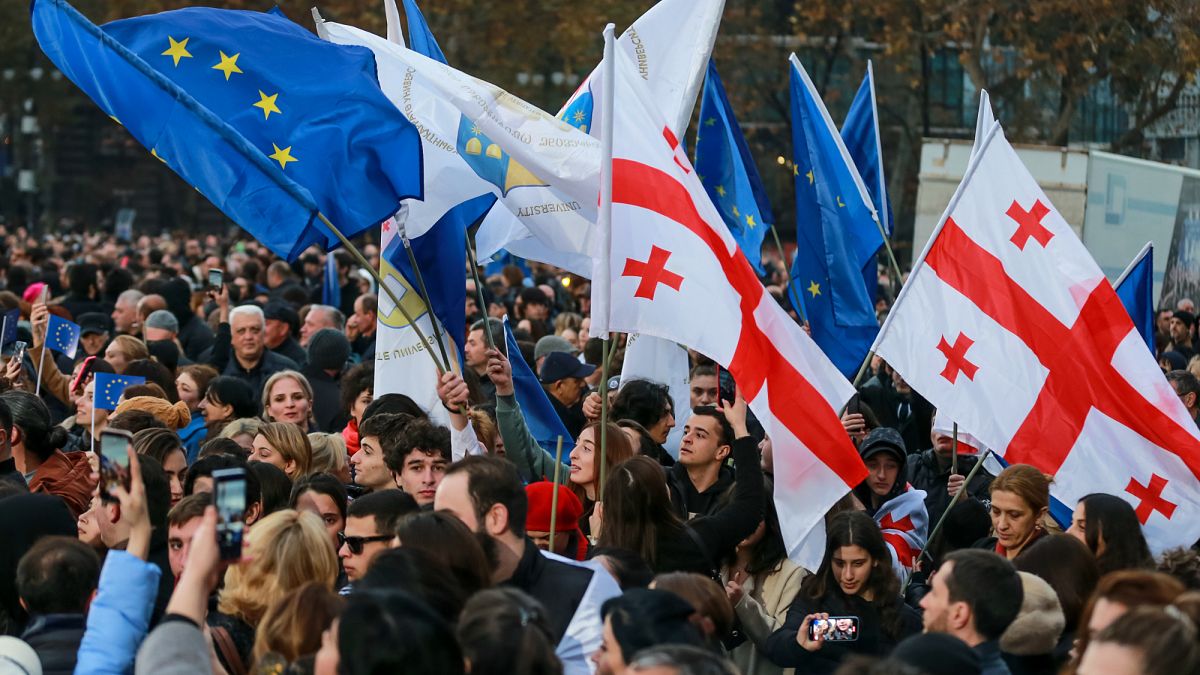ADVERTISEMENT
The European Commission will probably stay in the saddle after the two no-confidence votes pencilled in at the European Parliament on Thursday — one proposed by the far-right Patriots for Europe (PfE) group and the other by The Left.
However, the outcome of the votes could reveal just how widespread discontent with Ursula von der Leyen is among MEPs.
Toppling the European Commission is a goal that is extremely difficult to achieve. At least two-thirds of the votes cast, representing a majority of all MEPs, are needed for a motion of censure to be approved, which would force the Commission to resign.
This means at least 360 votes — a threshold impossible to reach without the support of part of the current “centrist coalition”, the alliance made up of the European People’s Party (EPP), the Socialists and Democrats (S&D), and Renew Europe, which backs the Commission.
The EPP consists of 188 MEPs, S&D has 136 and Renew has 75 seats.
The EPP, von der Leyen’s party, is fully aligned behind the Commission and therefore expected to vote against both motions of censure.
The Socialists and liberals will also reject the no-confidence attempts, despite some turbulence within the coalition over the EPP’s informal cooperation with the far right and the Commission’s major push to simplify regulation.
“We cannot afford a ‘blocked EU,’” S&D President Iratxe García Pérez said during the plenary debate on the motions of censure on Monday.
Despite agreeing with The Left on criticising the Commission’s inaction on Gaza, García Pérez claimed the credit for having pushed the Commission to propose the partial suspension of the EU-Israel agreement and the sanctions against Israeli settlers and far-right ministers, as well as for having put in place a housing plan and having defended the climate goals.
“The Left refused to negotiate. Our answer is clear: dialogue, negotiation, and compromise are fruitful to improve the citizens’ lives”, she said.
Renew’s chair Valérie Hayer was even more explicit, labelling the parties that proposed the motions of censure as “trolls”. “Extremists and populists are Europe’s worst enemies, engineers of chaos who want to destroy Europe from inside”, Hayer said during the debate, referring to The Left and PfE, and making clear that her group will not support any of the motion.
Still, it remains to be seen how many MEPs from S&D and Renew will defect from the party line by voting in favour of one of the motions or by choosing not to show up for the vote.
The second option is more likely, as it is widely seen as a way to express discontent: only 98 Socialist MEPs out of 136 voted against the last no-confidence motion in July, while one was in favour and three abstained.
The psychological threshold
360 is the number to look at in the two no-confidence votes for another reason: this was the total number of MEPs who defended the European Commission by voting against the last motion of censure.
It was a very slight majority of the Parliament, which is made up of 719 members. And it was fewer than the 370 votes cast in favour of the European Commission’s approval in November 2024 — which, in turn, was less than the 401 votes that Ursula von der Leyen received when she was approved as President of the Commission in July 2024.
A further decline in her approval rate will depend mostly on two political groups: the leftist Greens/EFA and the right-wing European Conservatives and Reformists (ECR).
For different reasons, these two groups were split in the last confidence vote. Among the Conservatives, Romanian MEPs from the ultra-nationalist party AUR and Poles from Law and Justice or PiS party are very critical of von der Leyen, while the Belgians and Italians are more in favour of her political course.
“Each national delegation (within ECR) will be free to decide how to vote according to the reasons and interests of its own people,” ECR’s co-chair Nicola Procaccini announced during the debate, and it seems that the vote will tear the group apart again.
Within the Greens, Italians and Spaniards are generally more critical of the Commission — and they refused to take part in the last confidence vote — while the Germans and MEPs from Nordic countries are more cautious.
Last time, they voted against the motion of censure, claiming they could not support an attempt coming from the far right. This time, they will probably repeat the move even on a motion from The Left, which is attacking von der Leyen’s College for the EU-Mercosur deal, its “failure” to address the climate and social crises, and its approach to Israel’s war on Gaza — all stances generally shared by the Green group.
“In these crucial moments, do we really want an institutional crisis? What exactly does it solve not having a Commission right now?” asked co-president Terry Reintke during the debate.
As the extremes of the hemicycle attempt once again to topple the Commission, with little chance of success, a symbolic race is emerging between the two votes: which motion will gain more support — and fewer votes against — in a complex dynamic.
PfE could support the motion of censure coming from The Left, as its President Jordan Bardella suggested and an internal source confirmed to Euronews.
The Left will not return the favour, as its co-president Manon Aubry made clear. But some delegations, like the Italian Five Star Movement, are expected to break ranks.



